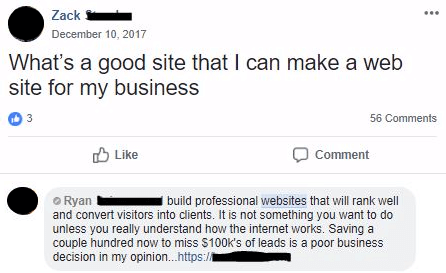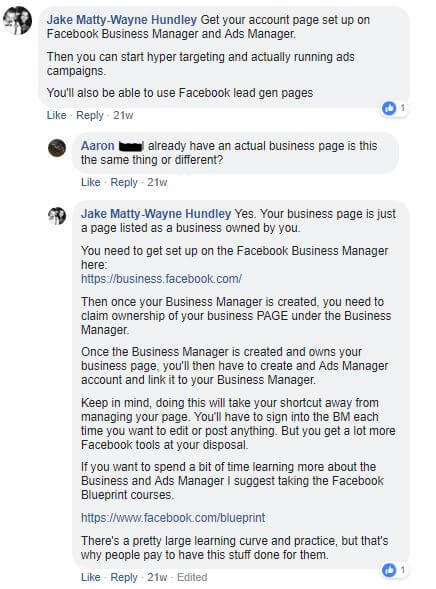
Book Review: “Rework”
>> 9 minute read
This book was recommended to me by my business partner, Cody. Actually, it wasn’t recommended. It was mailed to me with the expectation I would read it.
Side note, if you want someone to read a book, that’s how you do it…
But he’s good about “recommending” books other people should read based on who they are rather than wanting other people to read books because it helped him.
I could tell it was good book by the way the spine and cover were falling off. It’d been read. A lot.
Anyways, let’s get to it.
–Related: “Why I started Writing Book Reviews”—
Synopsis
Rework was written by founders and creators, Jason Fried and David Heinemeier, of 37signals, which is now, more notably called, Basecamp.
Basecamp is touted as an all-in-one business software. A software to manage projects, team communications, files, schedules, and more. All for a low cost of $99/mo. No matter how many users you have.
It’s basically an Asana project manager competitor that’s married to a competitor of Slack.
I preface the synopsis with this because, at its core, the book is about how to successfully grow and manage a startup or small business.
I’m confident the guys who built a business management software that’s used by over 3.5 million businesses know what they’re talking about when it comes to managing a small business.
But what is the book really about?
It’s a book about bureaucratic bullshit and a counter-culture to the “hustle-and-grind” mentality.
If I could write one sentence summarizing the book, it’d be:
“Forget everything you learned about a business and ‘what it takes to be successful’ because it’s a bunch of sensationalized garbage.”
Rework covers hot-button topics and suggests things like:
- You don’t need to work 8 hours per day
- You definitely don’t need to pull all-nighters or burn the midnight oil
- Waking up early as a trait of a successful person is a myth
- Quit being so damn professional
- Don’t worry about out-doing your competition
- Meetings are toxic
- And much more
There are a lot of how-to books and motivational literature that teach you how to grind it out or hustle until you hate yourself. This book isn’t one of those.
If you’re looking for one of those, consider reading the 10X Rule by Grant Cardone or Crushing It! by Gary Vaynerchuck.
But I can tell you right now, after reading this book, the hustle-and-grind attitude is stupid, lazy, and susceptible to burnout faster than a 24-year-old named Skylar in a Honda Civic.
Notable Topics
There are honestly too many notable topics to point out in this book. The main purpose of me writing this is so I have better retention of some of the best points of a book. However, I think I’ll be remembering a lot of what was in here.
With that, I’ll leave you with a few of my favorite topics. These are ones I’ll use frequently when lambasting my peers about their institutionalized concept of how to achieve success.
1) Workaholics are stupid
Our culture reveres people who kill themselves over work. As if they’re dedicated, loyal, and responsible. But really, they’re just dumb.
Unless your job requires you to be on location for a specific amount of time (police officers, fire fighters, doctors, or anything like that), there’s no reason to be working 10-14 hour days
I’ve paraphrased a few key points here:
- This kind of ethic isn’t sustainable. You’re gonna kill yourself.
- You can’t fix problems by throwing hours at them. Time doesn’t solve problems. Your brain does.
- Workaholics don’t look for ways to be more efficient. They get off on working more hours because it makes themselves feel good. It’s intellectual laziness
- “They’re perfectionists that spend too much time fixing inconsequential details instead of moving on”
“Workaholics aren’t hereos. They don’t save the day, they just use it up. The real hero is already home because she figured out a faster way to get things done.”
In my own words: there’s no need to kill yourself over long hours and sacrificing your work-life balance. There are faster and more efficient ways to get the work done.
Jason and David asked themselves how. So they created 37signals.
2) Don’t be an entrepreneur and don’t start a startup
Be a starter and start a small business.
Entrepreneur is a term used by posers wearing suits they can’t afford while pretending to be a marketing guru and delusional people peddling MLM bullshit.
A starter is someone who is doing what they love and turning a profit. Entrepreneurs are rarely profitable.
Social media marketing gurus love money and are “doing marketing”. They’re not making a profit. And if they are, it won’t last. It’s a short term way to earn money while getting a lot of people to hate you. They are Eddie from “Ed, Edd, and Eddie”.
MLMers are touting bullshit quadruple-digit monthly incomes while calling themselves “entrepreneurs” peddling a product they don’t own, manufacture, or control the distribution of. If you’re one of these and want to call me out, feel free to comment below.
If money is what you love, what you do to get there will fail you.
So what about being a startup?
A startup is a “magical place” where you call yourself an entrepreneur and throw money at problems (often other people’s money, such as seed investors).
Startups try to scale too fast and get to the 100-employee mark as fast as possible, yet aren’t concerned with profitability until they get there.
Be concerned about your profit from day one. Eventually, your startup will have to “grow up” and start dealing with real-world issues like payroll, accounts receivable, and sustainability.
Startups try to start at the top… Start…UP…
Starters start at the bottom.
3) Build an audience, not a market
An audience follows you. They care about what you have to say because what you say is meaningful to their life.
This chapter screams “Gary Vaynerchuck”.
Ignore the press releases that no one cares about and don’t worry about the next ad that will get your more customers.
Start making content that people give a shit about. Again, they don’t care about your promotions. They want to know how to manage their finances, groom their dog, or edit photos. So tell them how. They will not only listen, but they’ll follow you.
If you’re worried about giving away all of your secrets, just remember, emulate chefs and drug dealers get it right.
Those are references in the book under the chapter on “promotion”.
“When you build an audience, you don’t have to buy people’s attention — they give it to you.”
“Share information that’s valuable and you’ll slowly but surely build a loyal audience. Then when you need to get the word out, the right people will already be listening.”
4) Underdo your competition and let your clients outgrow you
If you try to be the best at everything you’ll end up being the best at nothing.
The expression, “The Jack of all trades is a master of none” can’t be any truer in this instance.
If you have a profitable product or service that services your customers just fine the way it is, don’t try to bend over backward for one or a few of your “high-paying” clients.
Those clients think they can run your business for you. They come and go. There will always be people for your product as long as your product is for the people.
If your competitor does everything, don’t try to be like them. Do what you’re good at and be the expert in that.
One of my clients with my business only does fertilization and insect control for lawns. He doesn’t mow, landscape, or aerate.
His business’s name is literally “The Fertilizer Guy“. And he dominates. People come to him because they know he’s the expert at restoring lawns. Not just maintaining them.
If he wants to branch out in the future and start doing aeration, he can. But he’d rather crush it at one thing then be mediocre at multiple things.
As noted in a previous chapter in the book:
“Build half a product, not a half-assed product.”
Keep two things in mind:
- Don’t let your customers demand more from you. Let them outgrow you if your services no longer provide the solution they’re looking for.
- Don’t worry about outdoing or doing more than your competitors. You’re better off doing less than your competitor by being better at those fewer things and even more profitable with a lighter workload.
5) Treating employees like children will produce childish results
The direct quote in the book is, “When you treat people like children, you get children’s work.”
Micromanaging doesn’t produce great results. Hiring people with different personalities than you who are comfortable enough to say your idea sucks ass is what produces great results.
The book uses the example of a dinner party when talking about company culture. It has you imagine you were at a dinner party with a bunch of people you didn’t know. The only conversations would be boring small talk that didn’t go anywhere.
These kinds of interactions never dive into deep or controversial topics that could have a positive impact on a circumstance.
However, if you were at a dinner party with a bunch of your friends and family, there would likely be a lot of laughing and productive and fun conversations.
If you can’t hire or give autonomy to employees to emulate that second scene, your business isn’t going anywhere.
You also have to realize that employees don’t have the same amount of skin in the game as you. They never will.
So I’ll end this section with an excerpt from the book,
“What do you gain if you ban employeees from, say, visiting a social-networking site or watching YouTube while at work? You gain nothing. That time doesn’t magically convert to work. They’ll just find some other diversion.
And look, you’re not going to get a full eight hours a day out of poeple anyway. That’s a myth.”
How I can apply the principles and practices
Cody would live and die by this book. Not because the book has taught him a lot. But because it’s how he already is. He exemplifies a lot of these principles. And I’ve already started taking on a few characteristics of those.
For example, I’m no longer worried about competition. I only focus on us. To me, we don’t have any competitors. We have us. And if you don’t want to work with us then it won’t bother me. We’re just not a good fit.
Being more efficient with my workload
Another principle I believe is the myth of the 8 hour work day. It’s not needed. I can get more done and make more money in an hour with my business than I can in 8 hours at my day job.
Not that I’m able to do that every day, but the opportunity is there. Regardless of the matter, 8 hours is not a requirement to be productive. In fact, I believe it’s a productivity and morale killer.
Eight hours isn’t needed. Especially if you’re efficient with the time you have. I’m not.
I have the ideas to turn a 40 hour project into 10 hours or even less, I just haven’t acted on them yet. I would have to drop client work to work on that. But perhaps that kind of investment is needed.
I’ll neve be intelligent with how I handle my workload if I can’t make some time to set these processes and templates up.
Learning to say no to clients
I’m terrible at this. And Cody knows it. He’s just too nice to say anything about it. Or maybe he’s not and just hates confrontation.
Anyways, I have a really hard time telling new clients they’re going to need to be booked out a few months before we can build their website. Especially in the industry we’re in. Two to three months out is too long and the landscaping season is practically over by then.
I’ve been doing better about saying no to specific and custom requests. But when it comes to the initial sign-on and timeline promises. I suck. I’ll get better at this. Especially after reading this book.
The book has a quote in the section, “Say no by default” that goes like this:
“It’s better to have people be happy using someone else’s product than disgruntled using yours.”
I think that’s true about timeline expectations and I will work on that.
Watching what I say and how I say it
There’s a pretty good section in the book on culture. And in that section there are two topics that jump out at me. They are:
- Sounds like you
- Four letter words
“Sounds like you” is a section that’s devoted to calling out the fake-ass professional tone you take when you write work emails.
The examples in the book are, don’t say “transparent” when you mean “honest” and don’t say “monetization” when you mean “make money”.
It’s actually pretty reminiscent of William Zinsser’s message in On Writing Well. Though, I think Zinsser said it better when he said:
“We are a society strangling in unnecessary words, circular constructions, pompous frills, and meaningless jargon.”
“…every profession has its growing aresenal of jargon to throw dust in the eyes of the populace.”
“Our national tendency is to inflate and thereby sound important.”
In the words of Thoreau, “Simplify, simplify, simplify.”
I’m doing better at saying what I mean in a clearer and more concise way that comes off as personal rather than robotic. I hope you can tell that in my writing.
The second topic is about avoiding four letter words. And not shit, damn, and fuck. It’s talking about “need”, “can’t”, “easy”, “fast”, and even “ASAP”.
These words not only lie about the reality of the situations, but they also devalue any task or conversation that doesn’t include these words, especially ASAP.
ASAP gets used so much in business that it makes everything that doesn’t include “ASAP” not important.
I already work on this idea a lot. It’s something I subconsciously picked up while reading Dale Caregie’s How to Win Friends and Influence People.
What you say and how you say it matters and people will either choose to respect you over your choice of words or resent you.
Who I would recommend this book to
I would recommend this book to two people.
1) Workaholics who think the 8-hour day is a bare minimum
2) Someone interested in starting a sustainable business model
I would recommend it to the first person because I feel like they need to be opened up to a new train of thought.
The purpose of this review wasn’t to summarize it to the point where you don’t need to read the book. It was meant to paraphrase larger topics but also pique interest if you think what I’m saying is hogwash.
What I had to say doesn’t explain a lot of the reasoning behind the topics and sections of the book. If you want to learn more, read it.
The second person I’d recommend this to is the starter. Someone walking into an endeavor with a fresh set of eyes and mind that isn’t burnt out to a rubber crisp.
Today’s starters are our only chance to change the inefficient and impersonal culture of tomorrow’s business models.






